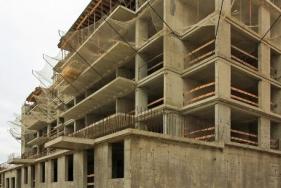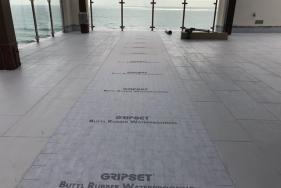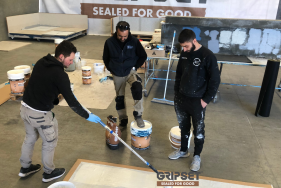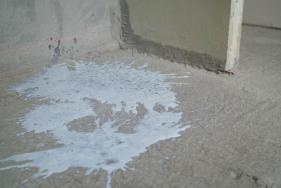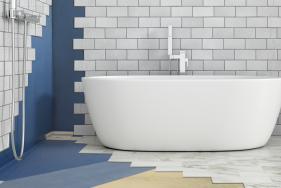How to successfully tile over your waterproofing? (Part 1)
Let’s learn from the expert this week, who is a tiler by trade and is the technical head of Gripset, Yandi Milans about his thoughts on waterproofing as a tiler and a waterproofer.
What biggest challenges did you face as a tiler once the surface had been waterproofed?
The main issue and the challenge that I faced was when the work on the building was not carried out to the standards of the waterproofing that one could feel comfortable to follow on from. The pin holing, the gaps or the things not being detailed correctly, voids around mixer taps. All sorts of issues that would really make it hard for someone to really commence with the tiling work which needs to be done.
What would you do if the waterproofing is not up to the standard?
Well, the first the thing I would do would be contacting the person responsible for the work. So whether it is the builder or the supervisor or the client if its private job, I'd consult the client and then try to find the quickest solution so that the tiling can be commenced. This is because you are there to do a job. You just don't start to get paid until you start working. So, I would like to resolve the issue as quickly as possible where everyone, all parties involved can be happy and even I can be happy making sure that the occupant won’t be left with a bunch of issues later down the track.
What would you do if the tiling did not last the warranty period?
I've come across this a lot of the time. It's not something that I would recommend to other people, but you should start repairing the work yourself as you'd be charging it out on an hourly rate. If you've inherited the issue, so you must deal with it at the end of the day. It is either you accept what you’ve got there, or you walk away from the job or do the best to rectify to bring it up to a standard that you would be comfortable.
What would you do in the external situations where there are different waterproofers for below and above screed?
I would start by talking and convincing the client telling that they need to give you the full project to me because you want to be able to guarantee and package it properly. Or the other thing you could do as well, put a name forward of waterproofing contractor, that you've had a relationship with, you know will do quality work. So, ideally for us, because we're comfortable with the whole system we've come up with and worked to. We do as the manufacturer asks us to do making sure that the is installed as per manufacturer and then tiled to the standard. We know we’re confident with that system and we always try and encourage the client to use us to do the whole piece of work that way if there are issues down the track, they know that's its one phone call they have to make for the common resolving issues that they might have.
What was the biggest issue with builders that you find out in the marketplace now?
I think its attitude. I think a lot of the time it really comes down to attitude and the seriousness that the waterproofing piece is sort of taken. A lot of builders in the past that we had to deal with, will just say, see you know you don't have to do this when we know that we must do this.
They try to get away with as much as they can, they try and make the waterproofing piece as small as they can, so then that way the rest of the job can commence. The tiling work can commence and then they can sort of be done with it. So, speed is a big thing for them. I think its speed and cost in terms of what they think. They might not see the value in getting really good waterproofing job on their projects because of maybe some misconceptions which are definitely not true.
As a Tiler/Waterproofer what are your thoughts on a sheet membrane or liquid membrane?
I went away from the tiling business and went into the training for four years but when I came back into the tiling business, I didn’t really use a lot of the liquid on the floors especially upstairs, shower floors, balconies. I just wanted, something that was going to be a little bit faster in turn around and leave a job that was going to be robust and be able to withstand, decades of use really.
So, on a suspended floor with lightweight construction, the sheet is definitely more secure in my opinion.
Share:

